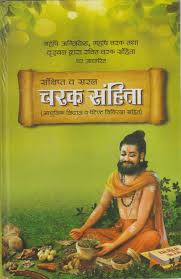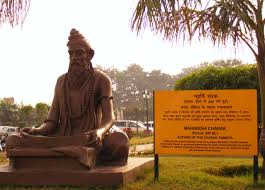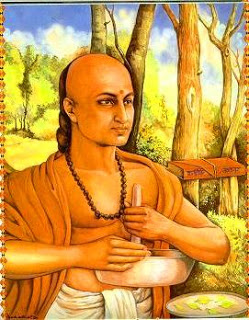Who was Charak?
Charak is considered the father of ancient Indian science of medicine. He was the RajVaidya (royal doctor) in the court of Kanishka. His Charak Samhita is a remarkablebook on medicine. It has the description of a large number of diseases and gives methodsof identifying their causes as well as the method of their treatment. He was the first to talkabout digestion, metabolism and immunity as important for health and so medical scienc.In Charak Samhita, more stress has been laid on removing the cause of disease ratherthan simply treating the illness. Charak also knew the fundamentals of Genetics. Don’t youfind it fascinating that thousands of years back, medical science was at such an advancedstage in India.
His principles, diagoneses, and cures retain their potency and truth even after a couple of millennia. When the science of anatomy was confused with different theories in Europe, Acharya Charak revealed through his innate genius and enquiries the facts on human anatomy, embryology, pharmacology, blood circulation and diseases like diabetes, tuberculosis, heart disease, etc. The following statements are attributed to Acharya Charak: “A physician who fails to enter the body of a patient with the lamp of knowledge and understanding can never treat diseases. He should first study all the factors, including environment, which influence a patient’s disease, and then prescribe treatment. It is more important to prevent the occurrence of disease than to seek a cure.” .

These remarks appear obvious today, though they were often not heeded, and were made by Charak, in his famous Ayurvedic treatise Charak Samhita. The treatise contains many such remarks which are held in reverence even today. Some of them are in the fields of physiology, etiology and embryology.
In the “Charak Samhita” he has described the medicinal qualities and functions of 100,000 herbal plants. He has emphasized the influence of diet and activity on mind and body. He has proved the correlation of spirituality and physical health contributed greatly to diagnostic and curative sciences. He has also prescribed and ethical charter for medical practitioners two centuries prior to the Hippocratic oath. Through his genius and intuition, Acharya Charak made landmark contributions to Ayurvedal. He forever remains etched in the annals of history as one of the greatest and noblest of rishi-scientists.
Under the guidance of the ancient physician Atreya, Agnivesa had written an encyclopedic treatise in the eighth century B.C. However, it was only when Charaka revised this treatise that it gained popularity and came to be known as Charakasamhita. For two millennia it remained a standard work on the subject and was translated into many foreign languages, including Arabic and Latin.
